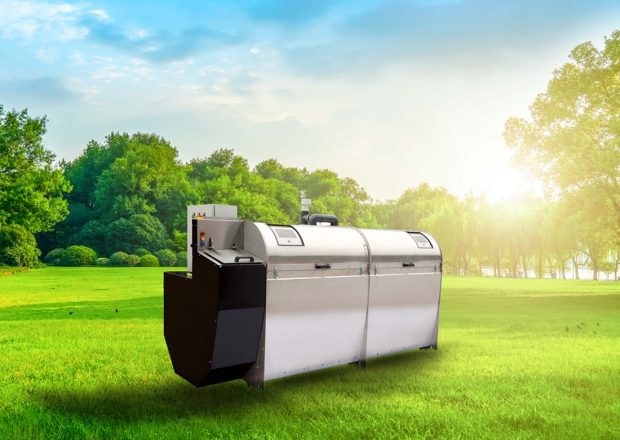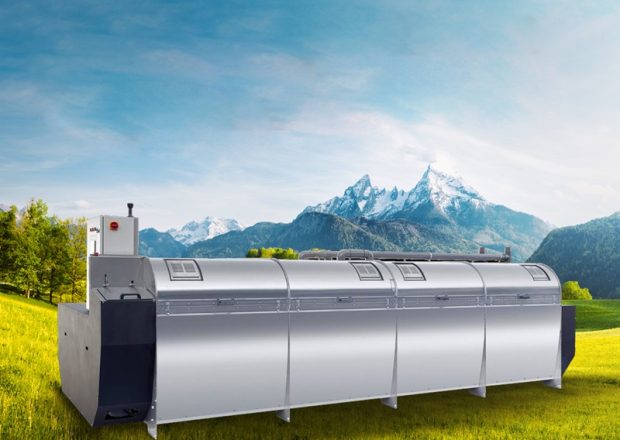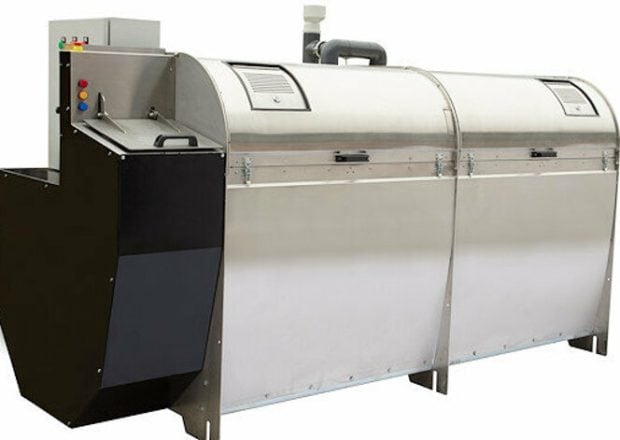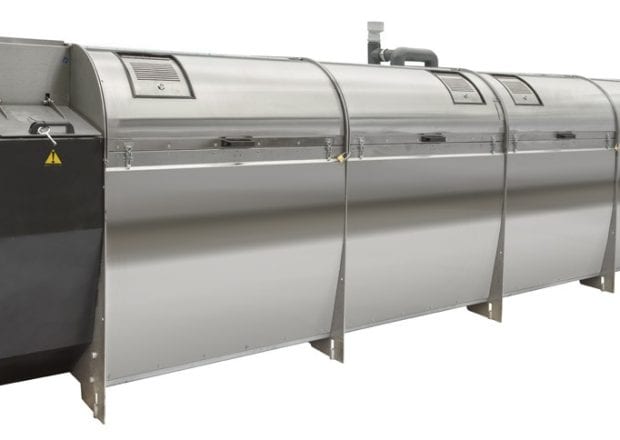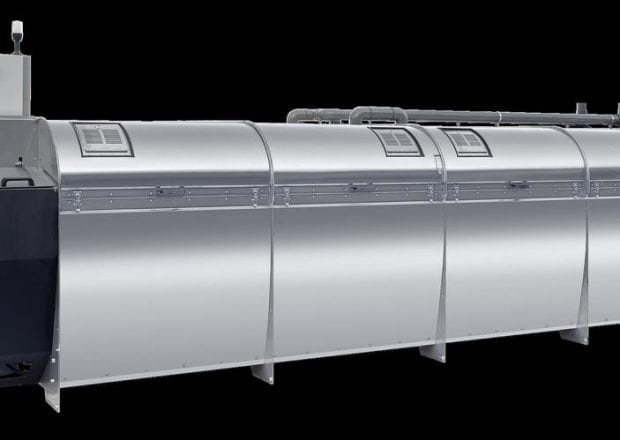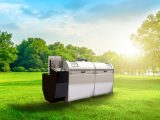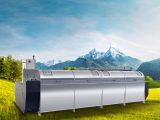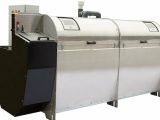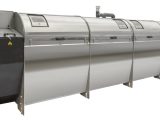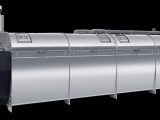

Composting Machines
Composting machines accelerate the decomposition of organic waste, efficiently turning it into nutrient-rich compost. They create optimal conditions like temperature and aeration, allowing microorganisms to quickly break down the waste.
The Compost
Microorganisms produce compost, a soil conditioner, by biologically degrading biodegradable waste such as vegetable/fruit scraps, food waste, garden waste, tea/coffee waste, etc.
Microorganisms, mostly invisible to the naked eye, biochemically break down organic substances in waste with the help of atmospheric oxygen during composting.
Composting machines play a crucial role by automating organic waste decomposition and speeding up material breakdown. These machines ensure optimal conditions for microorganisms to thrive, delivering efficient and consistent compost production.
During composting, organic material decomposes rapidly at first, then slows down until it forms stable organic mass. After this stage, the slowly decomposing organic substances stabilize and mature.
Why Should We Use Composting Machines
Nature slowly transforms biodegradable wastes. Compost machines, used for the Zero Waste Project, accelerate this process by creating conditions that activate microorganisms, producing compost within approximately four weeks.
The YC 100 and YC 200 compost machines speed up the composting process. By using composting devices, you can achieve an efficient solid waste management system. Separating biodegradable waste with a high mass-volume ratio at its source results in cleaner remaining solid waste. This allows for easier compression and better waste management. Efficiently managing wet biodegradable waste will help produce high-quality compost and improve collection systems.
The Working System of Composting Machines
Composting machines shred biodegradable waste like vegetable/fruit scraps, food waste, garden waste, and tea/coffee waste in the inlet chamber to accelerate microorganism activity. Microorganisms then transform the waste into compost in an aerated chamber.
The machine automatically mixes materials, making the process easy to operate. Composting machines include a shredder chamber, aerated composting chamber, and maturing chamber in a compact structure.
Composting machines process biodegradable waste at the source, transforming it into compost without needing to transport the waste elsewhere.
Benefits of Compost Recycling Organic Waste
Organic wastes that would otherwise accumulate or cause pollution through burning become useful, valuable resources through natural processes. Instead of polluting, organic waste turns into nutrient-rich compost that enhances soil health.
Improving Soil Structure
Compost promotes aggregation by increasing organic matter in soils. Aggregates allow the soil to breathe.
Compost helps the soil retain moisture during rainfall and reduces evaporation. It prevents erosion by absorbing excess water like a sponge. 100 kg of compost can hold about 195-200 kg of water.
Enabling Soil Ventilation
Compost creates an airy layer on the soil surface, providing a healthy environment for various soil creatures to thrive. This helps plant roots breathe comfortably and absorb potassium more easily.
Providing Nutrients When Plants Need It (Slow-Release)
Plants absorb synthetic fertilizers in salt form when mixed with water, but excess nutrients can infiltrate the soil and pollute groundwater. Compost offers slow-release nutrients that plants can absorb as needed, acting as both a food source and store.
Neutralizing Toxins in Soil
Compost transforms toxic substances and heavy metals in the soil into forms plants cannot absorb through their roots. It is also used to rehabilitate severely contaminated soils.
Regulating Soil pH Balance
When the pH level is too high or low, plants struggle to absorb nutrients, even if they are present. Compost helps widen the pH range, providing more flexible conditions for plant growth.
Accelerating Growth and Strengthening Plants
Even at low concentrations, humic acid in the soil accelerates plant growth.
Waste Types
Under the Zero Waste concept, wastes are categorized into 12 types. Understanding the harmful effects of incorrect disposal practices and applying proper recycling processes are crucial for each category.
- Wooden Waste
- Waste Batteries
- Vegetable Waste Oil
- Glass Waste
- Electronic Waste
- Paper Waste
- Composite Waste
- Metal Waste
- Organic Waste
- Plastic Waste
- Textile Waste
- Medical Waste
Composting Machines for Sustainability
Composting machines reduce organic waste sent to landfills, lowering methane emissions, a potent greenhouse gas. They transform organic waste into nutrient-rich compost, promoting a circular economy and enabling agricultural reuse. This process conserves landfill space and reduces the need for chemical fertilizers, contributing to sustainable farming practices.
Composting machines ultimately close the loop in waste management, supporting both environmental and economic sustainability.
For Information:
Erkan Kozak / Product Manager / 0532 776 2152
To read our article about compost, visit Kademe Blog





